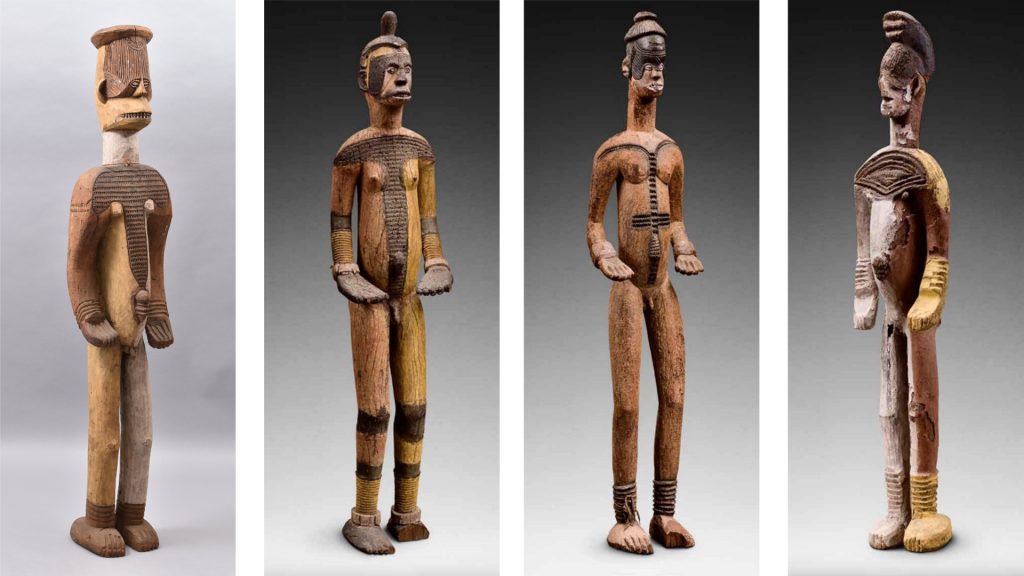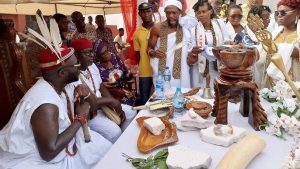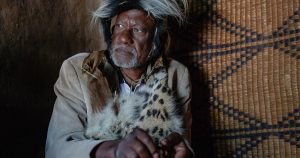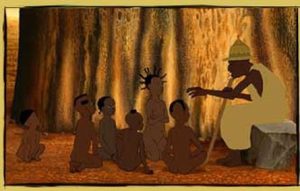Within the vast spiritual and cultural terrain of the Igbo people of Nigeria, the Arusi god takes the stage. Arusi describes a range of gods and goddesses revered in many civilizations, each reflecting certain aspects of life, nature, and morality. Deeply ingrained in the Igbo belief system are the ideas that the spiritual world is inextricably linked with the physical world and that gods, or Arusi, act as middlemen between people and the highest deity, Chukwu. The importance of Arusi in Igbo society, the many forms of Arusi, their functions in society, and their veneration are investigated in this paper.
The Concept of Arusi
Any of the minor gods or goddesses included in the Igbo pantheon is referred to as “Arusi.” Arusi gods are more localized and thought to directly impact certain facets of life and nature than Chukwu, the creator and ultimate deity. Every Arusi god is connected to certain fields such fertility, justice, agriculture, war, or medicine. Requiring respect, adoration, and sometimes appeasement, these gods are seen as strong spiritual beings who rule the forces of nature and human fate.
Often connected with revered natural elements as rivers, woods, mountains, and trees, arusi gods include For the Igbo, the natural surroundings are spiritual as well as physical ones occupied by these gods controlling the many elements. Arusi’s presence in daily life emphasizes the conviction on the holiness of nature and the need of coexistence with the surroundings.
Types of Arusi Deities
Igbo culture has several Arusi gods, each with particular traits and spheres of influence. Among the most famously Arusi are Ala, Amadioha, Ikenga, and Ogwugwu.
Representing the soil, fertility, and morality, Ala—also known as Ani—is maybe the most beloved Arusi god. Considered the mother of all gods, Ala oversees the moral order, the fertility of the ground, and the welfare of the society. She guarantees that the society follows conventions and taboos by safeguarding the land and its laws. Legal infractions are said to set Ala’s fury ablaze, causing either human tragedy or natural calamities.
Arusi god of justice, lightning, and thunder Amadioha is Often portrayed as a strong and terrifying deity, he is fast to punish anyone who deviate from society expectations. Considered the living example of divine justice, Amadioha guarantees that truth and morality rule the society. He is also connected to natural events, especially thunderstorms, which are said to reflect his wrath.
The Arusi god Ikenga is one of power, success, and accomplishment. Usually signifying strength and will, he is shown as a carved wooden figure with horns. Warriors, hunters, and those aiming toward success in their activities especially honor Ikenga. The god is said to bestow on his adherents bravery, tenacity, and wealth.
Generally speaking, Ogwugwu is the name for gods connected to the forest and the unknown. Considered both menacing and protective, these gods are often veiled in mystery. They are said to live in deep woodlands and are summoned in supernatural affairs including defense against witchcraft and evil spirits.
The Role of Arusi in Society
The social and spiritual life of the Igbo people depends much on their arusi gods. Their centrality shapes the moral standards, legal systems, and religious activities of the society. Arusi worship is a collective commitment that supports social cohesiveness and cultural identity rather than just a religious one.
Usually having their own patron Arusi god, every town or hamlet offers frequent prayers and sacrifices to him. These gods are said to guard the society, guarantee agricultural output, and uphold social peace. Important public events bringing people together and promoting unity and common goal are celebrations and rituals honoring Arusi.
Arusi gods are also called upon in times of crisis—that of droughs, diseases, or wars. Often via complex ceremonies and gifts, the community asks the Arusi for their favor in order to overcome these obstacles. Arusi gods therefore are considered as protectors of the welfare of the society, able to shape the path of events.
Arusi clearly has moral and legal power seen in the observance of customs and taboos. Some crimes, such murder, incest, or vandalism of holy sites, are deemed against the Arusi and carry harsh penalties. The Arusi’s dread of divine vengeance serves as a strong disincentive against immoral activity, therefore guaranteeing that people follow ethical norms in the society.
Veneration of Arusi
Igbo religious traditions are profoundly rooted in Worship of the Arusi. Every Arusi follows certain customs, makes sacrifices, and keeps taboos connected to its devotion. Usually acting as the middle between the god and the people, a priest or priestess called an eze mmụọ or nwadibia leads these rites.
Food, cattle, kola nuts, palm wine, and other goods considered precious in Igbo culture may be offered to the Arusi. These presents are meant to please the god, get its benefits, or stifle its anger. Prays, songs, dances, and even animal sacrifices—all carried out in holy settings like shrines or groves devoted to the Arusi—are part of the rites.
The Igbo calendar revolves mostly on celebrations honoring Arusi gods. Various religious ceremonies, social eating, and cultural events define these celebrations—including the New Yam Festival honoring Ala—as they Apart from their acts of worship, they provide chances for the community to gather, honor their background, and refresh their dedication to the principles the Arusi stands for.
Arusi in the Modern World
Arusi gods have remained important even as Christianity, Islam, and modernism have proliferated in Igbo culture. Although many Igbo people have become converts to various faiths, traditional beliefs in the power and importance of Arusi endure especially in rural regions. Sometimes there has been a syncretism when people engage in Arusi rites and church services simultaneously, therefore combining Christian and traditional ideas.
Arusi’s participation in modern Igbo society does not, however, present without difficulties. Driven by urbanization, education, and Western culture’s impact, the loss in ancient traditions has gradually undermined the knowledge and respect for Arusi deities. Furthermore, some contemporary Igbo reject their Christian or Muslim beliefs as they see the worship of Arusi as irreconcilable with these ones.
Notwithstanding these obstacles, there is an increasing effort among Igbo people to conserve and revive their ancient religion and culture, including respect of Arusi gods. Working to record and advance Arusi’s knowledge, cultural groups, academics, and traditionalists want to enable next generations to value and grasp this essential component of their legacy.
Final Thought
A pillar of Igbo faith and culture, the Arusi god represents the community’s relationship to the natural surroundings and spiritual realm. The Igbo people have maintained a strong feeling of identity, morality, and social cohesiveness via their devotion and respect. Arusi’s continuing importance in Igbo culture despite modernity’s constraints points to the great spiritual and cultural value of these gods. The Arusi deities will probably always be essential component of the Igbo cultural scene as attempts to maintain and revive their customs go on as they provide a connection to the past and a direction for the future.
Please read all our stories on African Culture here




